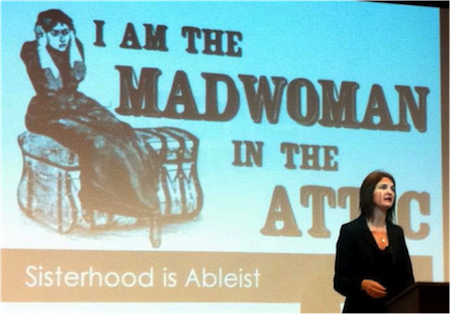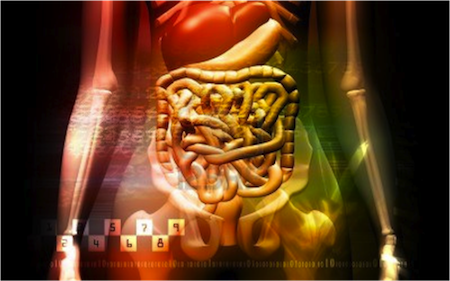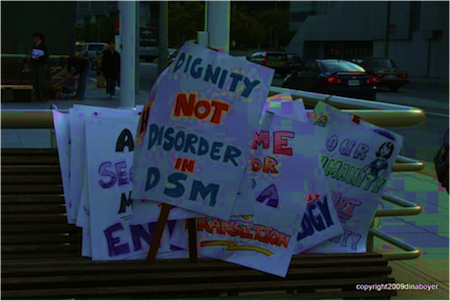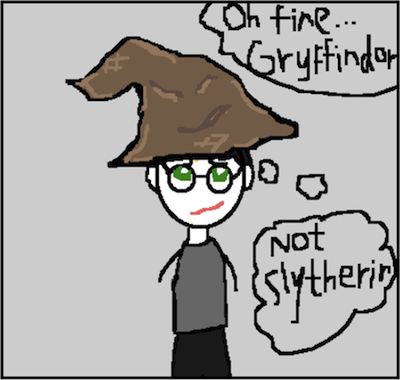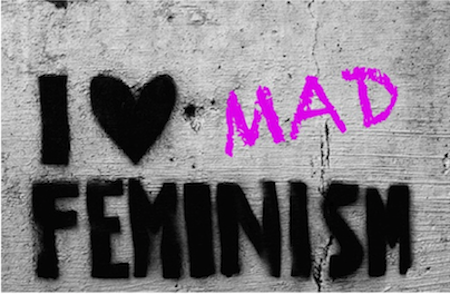The DSM5 is finally finished.[i] As with all momentous occasions, most people are disappointed. Feminist critics cast the DSM in the role of your worst ex-boyfriend, the one who won’t stop following you around and whispering mean things in your … Continue reading “Label C/Rip”
DSM-CRIP
The latest version of the DSM, the American Psychiatric Profession’s official guide, was released this May, to a chorus of controversy. Is the manual a ruse for Big Pharma, promoting the medicalization of benign human variation? Or does it provide necessary validation to individuals who genuinely suffer from psychiatric disabilities? Moving beyond a Good DSM/Bad DSM dichotomy, the essays in DSM-CRIP present a broad diversity of reactions, issuing from a range of crip and feminist perspectives, to the complex questions raised by the DSM5.
Bellyaching
Anna MollowIt would have been nice, before I sat down to start writing this essay, to have had some breakfast first: bacon and eggs, sourdough bread on the side, and a slice of fresh tomato. But once again, it appears … Continue reading “Bellyaching”
Trans People Still Disordered in DSM
Julia SeranoThis piece is a revised version of two articles originally posted on my blog (juliaserano.blogspot.com) on December 3 and 4, 2012. On the morning of December 3, 2012, I woke up to find my Twitter feed full of article links celebrating that … Continue reading “Trans People Still Disordered in DSM”
Happy Asexual Meets DSM
Kristina GuptaOvermedicalization, as every feminist, queer, and disability scholar knows, is a cornerstone of oppression. Yet traditional critiques of medicalization also have oppressive effects. For one thing, they typically fail to challenge stigma against sick people, preferring instead to simply … Continue reading “Happy Asexual Meets DSM”
Ashrams vs. Antipsychotics
Andrea CookeIn many cultures, both contemporary and ancient, hearing voices and seeing visions are not considered signs of disease. Yet western culture defines these experiences as irrefutable evidence of mental illness. The most common diagnosis applied to people who experience … Continue reading “Ashrams vs. Antipsychotics”
PreOccupied
Julia Miele RodasThe latest incarnation of the Diagnostic and Statistical Manual of Mental Disorders, the DSM5, proposes yet again a shifting and redefining of autism, migrating and merging allied diagnostic categories and simultaneously arousing an astonishing public response, both positive and negative. … Continue reading “PreOccupied”
Mad Feminism
Anna MollowI admit it: I’m mad.[i] Try as I might, I cannot summon up the elegant inquisitiveness of Julia Rodas’s multi-layered meditation on what there might be to like about the DSM. I could, I suppose, adopt a similar strategy in relation to Complex … Continue reading “Mad Feminism”


